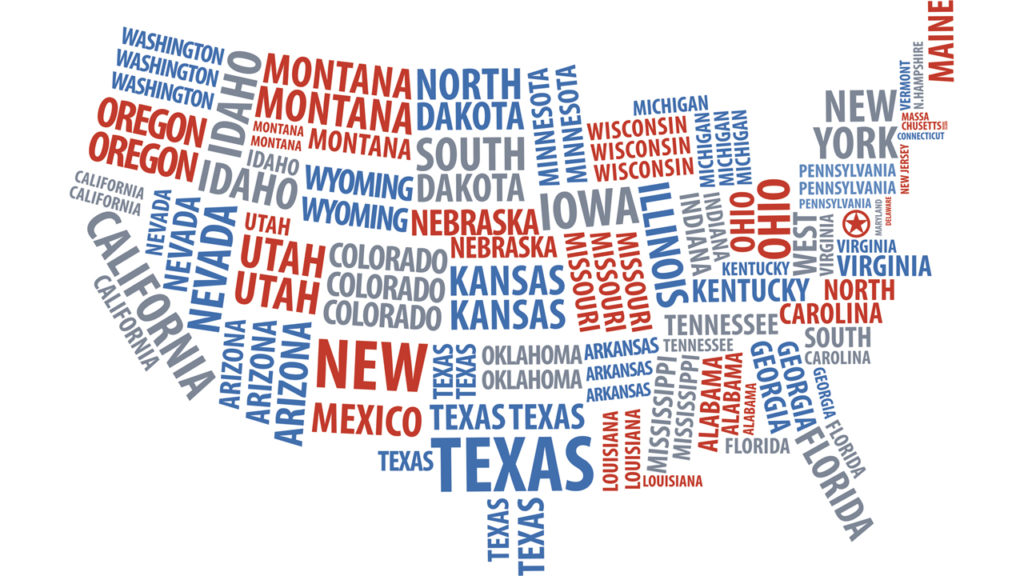The rough attic room hovered close around us as we gathered in near darkness. It was cold above the machine shop, so we kept our coats zipped and hats on. We bowed our heads in prayer, remembering those who met in hiding out of necessity. We did it out of choice, leaving the comfort of our warm, well-lit college campus facilities to remember the Christians who meet in hiding. We talked about sending help and being sent as help. They need us.
Some weeks we focused on traditional mission fields of Africa, Asia, and South America. We talked about poverty, hunger, and oppression. We discussed lack of education, ignorance, and crime. Perhaps we could send food and other resources? Maybe we could become overseas teachers? They need us.
Occasionally, we would acknowledge the needs of the Western world. We talked about the growing secularization of Europe and Oceania. How sad, we thought, that so many ancient cathedrals sit empty, that fewer and fewer attend church. We spoke about possible missionary trips to England or France. They need us.
These were natural activities for a college missions club in the United States. We had always been told that the world needed us. Those without democracy need our freedom and style of government. Those in ignorance need our educational system. Those who are hungry need our agricultural knowledge. Those who are poor need to be taught our conception of free enterprise. The sick need our medicine. Even those who believe need to be instructed by our theological expertise. They need us.
And we Americans have been willing to share our wealth of property, knowledge and spiritual tradition. Of the 400,000 international Christian missionaries in 2010, 1 in 3 was sent from the U.S.[1]Center for the Study of Global Christianity, Christianity in its Global Context, 1970-2020 (South Hamilton, MA: Gordon-Conwell Theological Seminary, 2013), 76.
Thinking back to my college days, it is ironic that we spent so little time discussing the country that receives more international missionaries than any other. In 2010, there were 32,400 missionaries to the U.S., surpassing any other country by 12,000.[2]Ibid.
USA: Christian Nation or Nation in Need of Christ?
More than 248 million Christians live in the States, making the U.S. home to the largest Christian population in the world.[3]Ibid. About 80 percent of Americans identify themselves as Christian.[4]Ibid., 15 Why, then, do so many consider the U.S. a mission field?
To begin with, it’s not particularly unusual for a country to have a large number of self-identified Christians. To add some perspective, of the countries that are home to the most Christians, five of the top 10 can boast a higher population percentage than the U.S.: Russia (81 percent), Brazil (91 percent), Philippines (91 percent), Democratic Republic of the Congo (95 percent), and Mexico (96 percent).[5]Ibid. And after the U.S., the largest recipients of foreign missionaries are Brazil, Russia, and the Democratic Republic of the Congo.
In the U.S. as elsewhere, it’s not always the absence of the Church but rather its condition that inspires foreign missionary efforts. In his Beyond Christendom, globalization scholar Jehu Hanciles writes that “the vast majority of African immigrant pastors experienced a ‘call’ to start a church only after they got to the United States.”[6]Jehu J. Hanciles, Beyond Christendom (Maryknoll, NY: Orbis Books, 2008), 386. This call comes through a variety of factors flowing out of the immigrant experience. Hanciles quotes a statement put together by one group of immigrant pastors:
The US is a great mission field because God is not a priority here; instead materialism has taken over the lives of people. We are responding to these challenges by attempting to change the direction of the wind. We have opened our doors for the early Morning Prayer meetings which are attended by African American, Hispanics, Japanese, and Koreans. We believe through this multi-ethnic interaction we can impact this society for Christ. American Christianity is saturated with…the American spirit of materialism. Many people are [so] busy chasing the dollar that God has given second place in their lives. God has called us from Africa and other places to help in reviving and redirecting the Christians to the true tenets of the Bible.[7]Ibid., 391.
We in the U.S. often see our freedom and affluence as blessings, as we should. But do we realize the weight of temptation showered on us through our prosperity?
While we pray for those who meet in hiding, do we fully appreciate public worship? Eighty percent of Americans may claim Christianity, but as few as 20 percent attend church regularly.[8]Justin Taylor, ” How Many American Really Attend Church Each Week?” OrthodoxyToday.org, accessed February 27, 2015. The reasons behind this trend are many and beyond the scope of this article. One factor worth noting is our Enlightenment bias toward independence. In our elevation of the individual, we have forgotten the gift we have in each other. Even those who attend church frequently lack deep spiritual community.
While we pity those in non-Western countries, do we grasp our own cultural deficiencies? We may rarely go hungry, but consumerism has us in a cultural stranglehold. Even the church is often more influenced by marketing strategies than concern for deeper matters of the soul. We talk about church growth in terms of filled seats instead of changed lives. Materialism influences our spiritual lives as we expend more energy on achieving the American dream than furthering the Gospel.
The legacy of Modernism continues to influence us as we expound (and argue about) doctrine with theological precision. Yet we don’t know how to have a relationship with the Holy Spirit. With all of our education, we obsess over scientific and historic quandaries in Scripture. We don’t know how to read the Bible as a story about the living God, with all the questions and paradoxes that might entail. We are more comfortable trusting a systematic theology than we are a compassionate, loving, and sometimes confusing God in three persons. In our emphasis on right believing, we have unwittingly become increasingly irrelevant to right living.
While we have rightly recognized the growing secularization of the rest of the West, we have failed to see that we are running the same course.
Missionaries to the USA
In his article Missionaries to America, Dr. James Emery White states: “It is difficult to think of America as a mission field, having been the exporter of faith for so many generations, but that is precisely what it has become.”[9]James Emery White, “Missionaries to America,” Crosswalk.com, last modified March 12, 2012. White argues that the U.S. needs the same sort of missionaries as the rest of the world, those who: learn the language, become sensitized to the culture, and translate the Gospel.Ibid. Growing in these areas is crucial for those who would be missionaries in the U.S.
Language. The first step to learning the language is to really listen. We need to cultivate our ability to hear those who are different from us, not just the words they say but more importantly the meaning behind their words. What are their needs? Where are they hurting? It’s easy for Christians — particularly successful American Christians — to feel like they have all the answers already, but sometimes we haven’t even heard what the questions are.
Culture. The American church has a distinct culture, and it’s important to accept that much of this is more societal than it is innately Christian. We frequently take moral stances on issues that are cultural: issues like appropriate language, dress, humor, drinking habits, and family dynamics. If we want to reach the U.S., we need to appreciate its multicultural distinctives in the gray areas, even while we stand firm for truth in the weightier areas of the faith: pride versus humility, selfishness versus love, greed versus generosity.
Gospel. While we listen and extend grace across language and culture barriers, it’s vital that we wrestle with and fully understand the Gospel. In American Christianity, the Gospel is frequently boiled down to four-spiritual-laws or God’s-wonderful-plan-for-your-life. If we want to reach the lost — even the lost within the church — we need to grasp the depth of the Gospel. We need to understand what it means that Jesus is the Messiah. We need to be thoroughly familiar with the story of God in the world, how humanity fell, and how Jesus came and will come again to make everything right. And we need to be able to explain that story in the language and cultural context of the USA.
Missionaries to foreign cultures learn these skills to reach the lost. Reflecting on the vast numbers of missionaries sent from the U.S., White makes a provocative suggestion:
Imagine 127,000 missionaries engaged in these three simple tasks for the sake of reaching the United States. Or maybe it would be quicker if 127,000 existing American church leaders realized that they were already these very missionaries, and needed to own the task at hand.[10]Ibid.
White’s vision is intriguing. Of course, we must always be mindful of the Holy Spirit’s leading. God does call some people to international missions. Indeed, the immense growth of Christianity around the world in the last century is due in part to the legacy of U.S. missions.[11]Daniel Lovering, “In 200-year tradition, most Christian missionaries are American,” Reuters, last modified February 20, 2012. But what if some of our missionaries stayed and focused on our own country? And what if we listened to the critiques of missionaries from other soils?
In our complacency and pride, we have failed to notice that North America is a part of the world in need. We need to appreciate that other nations are looking at our way and thinking: They need us.
Copyright 2015 Candice Gage. All rights reserved.
References[+]
| ↑1 | Center for the Study of Global Christianity, Christianity in its Global Context, 1970-2020 (South Hamilton, MA: Gordon-Conwell Theological Seminary, 2013), 76. |
|---|---|
| ↑2, ↑3, ↑5, ↑10 | Ibid. |
| ↑4 | Ibid., 15 |
| ↑6 | Jehu J. Hanciles, Beyond Christendom (Maryknoll, NY: Orbis Books, 2008), 386. |
| ↑7 | Ibid., 391. |
| ↑8 | Justin Taylor, ” How Many American Really Attend Church Each Week?” OrthodoxyToday.org, accessed February 27, 2015. |
| ↑9 | James Emery White, “Missionaries to America,” Crosswalk.com, last modified March 12, 2012. |
| ↑11 | Daniel Lovering, “In 200-year tradition, most Christian missionaries are American,” Reuters, last modified February 20, 2012. |












